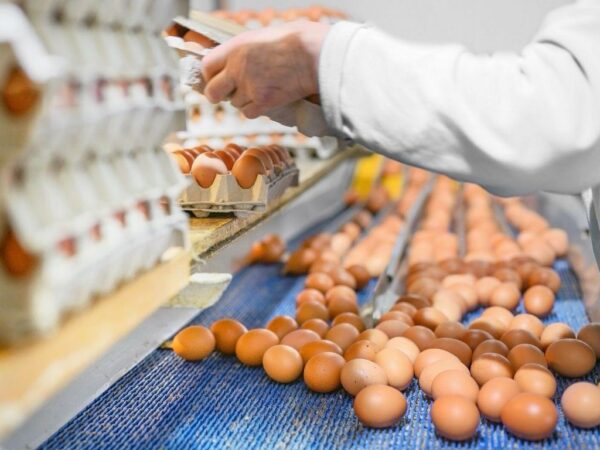1. Importance of Food Security: Food security is essential for national stability and public health. It involves ensuring that all individuals have access to sufficient, safe and nutritious food to maintain a healthy life.
2. Role of Food Manufacturing: The food manufacturing sector plays a crucial role in enhancing food security by improving food availability, quality and safety. Innovative practices and technologies in food production can contribute to a more resilient food system.
3. Government Initiatives in Budget 2026: The Malaysian government has introduced various tax incentives in the 2026 Budget to promote investment in food security projects and sustainable food manufacturing practices. This includes a 100% income tax exemption for new food production projects focused on domestic sales.
4. Sustainability Practices: Sustainable practices in food manufacturing, such as reducing waste, utilizing renewable energy and sourcing ingredients locally, are essential for long-term food security. These practices not only benefit the environment but also improve the economic viability of food businesses.
5. Support for Farmers, Fishermen and Agricultural Entrepreneurs: The government has announced significant support for farmers, fishermen and agricultural entrepreneurs in Budget 2026.
6. Food Safety Certification: Obtaining food safety certifications is crucial for manufacturers to ensure compliance with health regulations and build consumer trust. Certifications such as HACCP (Hazard Analysis Critical Control Point) and ISO 22000 are industry certifications that help ensure the safety and quality of food products.
Food security is defined by the Food and Agriculture Organization (FAO) as a state where all people, at all times, have physical, social and economic access to sufficient, safe and nutritious food to meet their dietary needs for an active and healthy life. Despite its importance, food security faces numerous challenges, particularly evident from 2020 to 2025:
1.Flooding in Malaysia (2021): Severe flooding in several states, including Selangor and Pahang, caused extensive damage to rice and vegetable crops. Reports indicated that thousands of hectares of farmland were inundated.
2.Pest Infestations (2022): A surge in pest populations, including the fall armyworm, affected corn and vegetable crops in various states. Farmers reported significant crop losses due to these infestations.
3.COVID-19 Pandemic Impact (2020-2022): The pandemic disrupted supply chains, leading to wastage of perishable goods. It was estimated that about 30% of fruits and vegetables were wasted during this period.
Source : https://theedgemalaysia.com/article/cover-story-weathering-perfect-storm-supply-chain-disruptions
4.Support for Farmers, Fishermen and Agricultural Entrepreneurs: The government has announced significant support for farmers, fishermen and agricultural entrepreneurs in Budget 2026.
5.Typhoon Damage in Southeast Asia (2020-2021): Typhoons that struck the Philippines and neighbouring countries had a ripple effect on regional food security, damaging crops such as bananas and coconuts.
6.Climate Change Effects (2020-2025): Ongoing climate change has led to unpredictable weather patterns, affecting planting schedules and crop viability. Climate change is linked to potential production and GDP losses, with one report estimating a 9% loss in production and 8.4% in GDP by 2030. Climate impacts disproportionately affect vulnerable communities, exacerbating existing food insecurity issues in states like Kelantan and Sabah.
7.Post-Harvest Losses: Studies indicate that Malaysia faces post-harvest losses of about 20-30% in certain crops due to inadequate storage facilities and poor handling practices. Malaysia faces a significant food loss and waste issue, discarding an estimated 23,000 tons of food daily, which is 53% of its total food production.
The problem spans the entire food supply chain, from production to consumption, and is exacerbated by consumer behaviour, agricultural practices, and a lack of comprehensive waste management systems. Contributing factors include post-harvest losses in perishable goods, inefficient processing, and a general lack of awareness about the value of food.

Food manufacturing is pivotal in addressing these challenges. By optimizing production processes, improving food quality and reducing waste, the food manufacturing sector can significantly contribute to food security. Here are ways in which food manufacturing enhances food security:
In the 2026 Budget, the Malaysian government introduced various tax incentives to bolster food security projects and encourage sustainable practices in agriculture and food manufacturing. Key initiatives include:
A) Tax Incentives for Food Security Projects:
B) Support for Sustainable Practices:
C) Research and Development Grants:
D) Support for Farmers and Fishermen: The government has announced significant support for farmers and fishermen in Budget 2026.
E) Support for Agricultural Entrepreneurs: The government is also focusing on agricultural entrepreneurs by providing:

Incentive / Scheme | Benefit or Value | Purpose / Scope |
New food-production companies: CIT relief | 100% tax exemption (10 yrs) | Encourage new local food factories and R&D |
Expanding food companies: CIT relief | 100% tax exemption (5 yrs) | Encourage expansion of existing food plants |
Automation tax incentives (agriculture) | Extended coverage | Applies to livestock, aquaculture, deep-sea fisheries, etc. |
Agrobank modernization loans | RM 1.1 billion | Low-interest financing for farm/process automation |
Agropreneur NextGen grants | RM 20 million | Grants for agri start-ups and expansion projects |
R&D and innovation incentives | (various programmes) | Tax breaks/deductions for food industry R&D |
Table 1 : Budget 2026 Food Manufacturing & Industry Incentives
Programme / Sector | Allocation (RM) | Purpose / Notes |
Agriculture Ministry (KPKM) budget | 6.87 billion | Total (7% ↑ over 2025) for agro-food modernisation |
State-level agri projects (with govts) | 300 million | Land-use optimisation in partnership with states |
Support for fruit entrepreneurs | 55 million | Crop incentives and farm infrastructure (local fruits) |
Farmer subsidies (paddy, fertiliser, etc.) | 2.62 billion | Inputs support, price aids (largest-ever farm subsidies) |
Rice farmer incentive (per hectare) | RM 4,300 | Up from RM3,790 (per ha, per season) |
Fisheries catch incentives & allowances | 160 million | Plus up to RM300/mth allowances |
Fishermen diesel subsidy | RM1.65/litre (subsidised) | Continuation of existing fuel subsidy |
Fishermen housing (fishing villages) | 10 million | Build/renovate ~380 homes |
Vessel modernisation (fishing fleets) | 20 million | Upgrade vessels to reduce foreign crew reliance |
Plantation smallholders support (Felda etc) | ~2.4 billion | Protects 720,000 settlers/families (land schemes) |
Table 2 : Major Food and Agricultural Allocations in Budget 2026 (Federal)
Food manufacturers can adopt various sustainable practices to enhance food security:
Food safety certifications are critical for manufacturers to ensure compliance with health regulations and build consumer trust. Some important certifications include:
The government is also placing a strong emphasis on the halal industry, recognizing its potential for growth and export opportunities:
Food security refers to the condition where all individuals have access to sufficient, safe and nutritious food to maintain a healthy life.
https://www.magcolm.my/food-safety-the-importance-of-pest-control-2/Food manufacturing enhances food security by increasing production efficiency, ensuring food safety, reducing waste and supporting local sourcing.
The Malaysian government has introduced tax incentives for food security projects and sustainable agricultural practices to encourage investment in the food manufacturing sector.
Key food safety certifications include HACCP, ISO 22000 and FSSC 22000, which ensure compliance with health regulations and build consumer trust.
Food manufacturers can adopt sustainable practices by utilizing renewable energy, implementing waste management systems, investing in technology and collaborating with local farmers.
While it’s difficult to predict, rising global inflation and supply chain disruptions suggest a potential food price crisis could occur. Malaysia’s Budget 2026 aims to enhance food security through strategic investments. By focusing on local production and sustainable practices, the government hopes to mitigate looming challenges in the food sector.
Strengthening food security through sustainable food manufacturing is vital for ensuring a stable and resilient food system in Malaysia, as emphasized in the Budget 2026. The government’s initiatives, coupled with the adoption of sustainable practices and food safety certifications, can significantly contribute to national food security. By investing in these areas, the food manufacturing sector can play a pivotal role in creating a healthier and more sustainable future for all Malaysians.
For more information on food safety certifications, visit Food Safety Certification.
